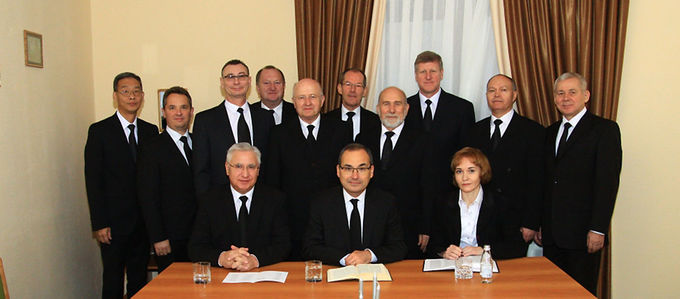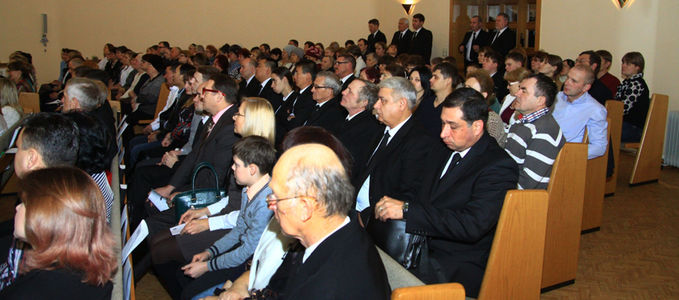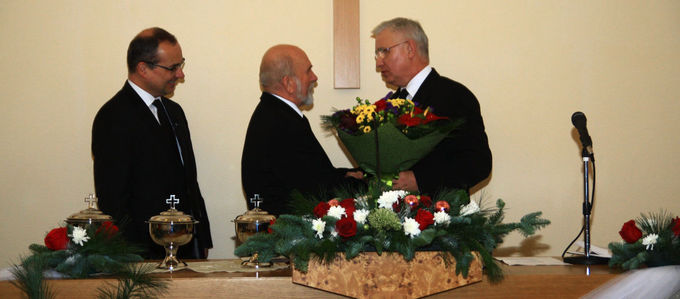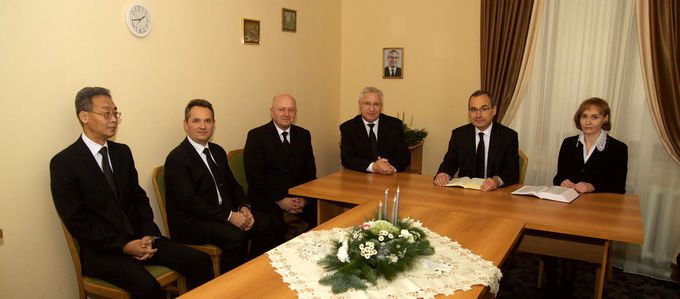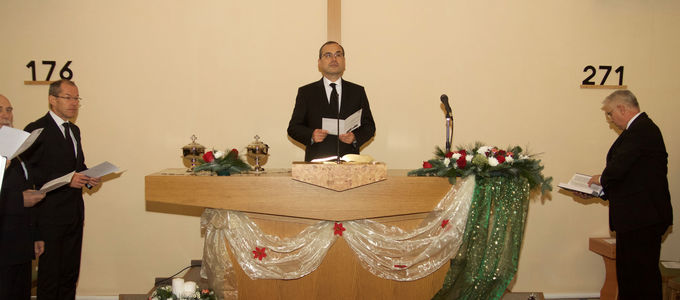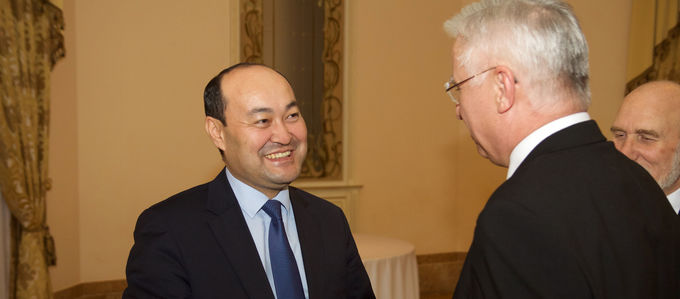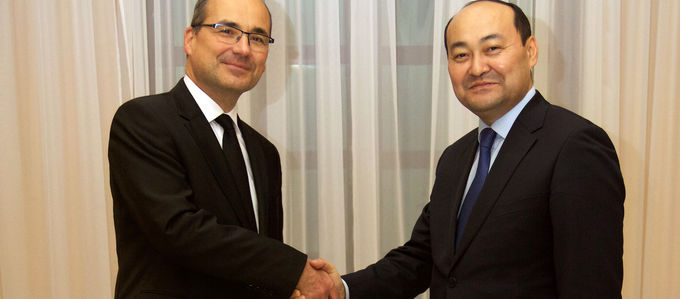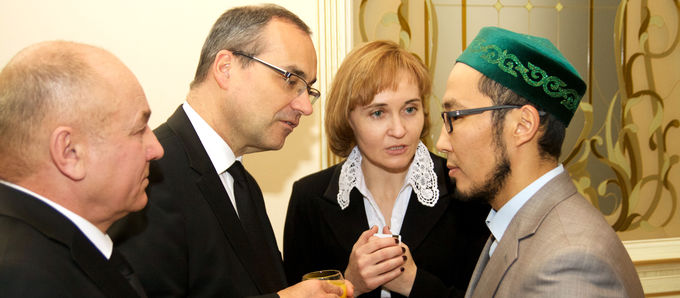
The journey to Kazakhstan had already been scheduled long in advance, but the question as to whether Chief Apostle Jean-Luc Schneider would indeed be allowed to conduct the divine services that had been planned remained open to the very last minute. The reason: strict legal regulations.
Chief Apostle Schneider had planned to visit the state on Russia’s southern border for some time. A divine service for the ministers of Central Asia was scheduled for the Saturday, while a divine service for the congregations of the capital city of Astana and its surroundings was scheduled for the Sunday.
Regulations ranging between protection and dialogue
A large hurdle for the Chief Apostle’s trip was overcome when he received his travel visa the week preceding it, however, the question of whether he would also receive the necessary permission to preach remained unanswered until the Friday before. This permission was finally granted when he arrived.
“As in many countries of the region, the people of Kazakhstan are traditionally Muslim,” says the responsible District Apostle Wolfgang Nadolny, as he explains the reason. “The Islam practised here is, however, more moderate. And Kazakhstan has taken measures to shield itself from fundamentalist influences. This is reflected in relatively strict laws,” he adds.
At the same time, the government places great value on interdenominational dialogue. It was against this backdrop that the New Apostolic Church sent out invitations to a reception on Saturday afternoon. Among the guests in attendance were the chairman of the Committee for Religious Affairs, the director of the International Centre for Culture and Religion, the bishop of the Lutheran-Protestant Church, the dean of the Roman Catholic Church, as well as a representative of the imam of the central mosque.
Initial contacts established through family relationships
The beginnings of the New Apostolic Church in Kazakhstan go back to the late 1980s. It was with the fall of the iron curtain that missionary work in the former Soviet Union began. It was through family relationships with German members that the first contacts were made and the first ministers began to travel to Kazakhstan, among other places. Many congregations were quickly established as a result.
When the country became independent at the start of the 1990s, however, many New Apostolic Christians of Russian and German background moved away. At present, the Church in Kazakhstan numbers some 8,000 members. Together with 88 other ministers, Bishop Sergey Hanayev cares for the country’s 26 registered congregations. Previously, responsibility for the pastoral care of the country lay with the Apostles of Berlin-Brandenburg, but was transferred to Apostle Marat Akchurin from Omsk, Russia on 1 January 2016.
Lowest population density in the world
In terms of surface area, Kazakhstan is one of the ten largest countries on earth—but owing to its low population of just sixteen million people, according to the latest census, it has the lowest population density in the world. According to official statistics, some 70 per cent of Kazakhs are Muslims, and a good quarter are Christian. Although state-sponsored atheism defined the lives of the people for decades when the country was still part of the former Soviet Union, not even three per cent of the population profess such a worldview today.







